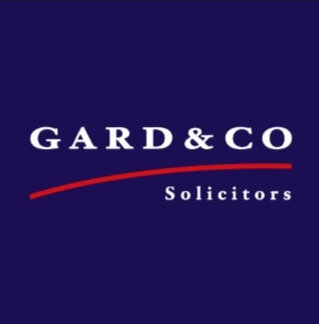Best Toxic Tort Lawyers in Plymouth
Share your needs with us, get contacted by law firms.
Free. Takes 2 min.
List of the best lawyers in Plymouth, United Kingdom
About Toxic Tort Law in Plymouth, United Kingdom
Toxic tort law refers to legal claims arising from exposure to hazardous substances, such as chemicals, pollutants or other toxic materials, which cause harm to individuals or groups. In Plymouth, toxic tort cases can involve contamination of water, soil, or air, as well as exposure in residential, workplace, or public settings. These cases often revolve around the accountability of parties such as employers, manufacturers, or property owners whose negligence led to toxic exposure. Legal action may result in compensation for medical costs, lost earnings, pain and suffering, and sometimes punitive damages.
Why You May Need a Lawyer
If you believe that you or your loved ones have suffered harm due to exposure to toxic substances, consulting a lawyer is essential. Here are some common situations where legal assistance is needed in toxic tort cases:
- Exposure to asbestos, mould, lead, pesticides, industrial chemicals or other hazardous materials at work or home
- Illness arising from contaminated water, soil, or air in your neighbourhood
- Product liability cases, such as defective consumer products that emit toxic fumes
- Occupational diseases or injuries linked to chemicals or pollutants in the workplace
- Environmental disasters affecting local communities in Plymouth
- Challenges to government or corporate activities suspected of causing environmental harm
Toxic tort claims are complex and can involve intricate scientific evidence, difficult liability questions and strict legal deadlines, so having a specialised lawyer increases your chances of achieving a fair outcome.
Local Laws Overview
Toxic tort law in Plymouth is governed primarily by UK-wide legislation, complemented by local regulations and environmental oversight. Key legal frameworks include:
- Environmental Protection Act 1990: Sets out waste management and pollution controls, and liabilities for contamination.
- Control of Substances Hazardous to Health Regulations (COSHH) 2002: Governs the management and handling of hazardous substances in workplaces.
- Common Law Negligence: You must prove duty of care, breach, causation, and damages for a successful claim.
- The Limitation Act 1980: Sets strict time limits to bring a personal injury or property damage claim, usually within three years from the date of injury or knowledge of harm.
- Local Council Environmental Enforcement: Plymouth City Council plays a significant role in monitoring and enforcing environmental health standards.
Local circumstances, such as Plymouth’s industrial history and proximity to marine environments, may influence the prevalence and nature of toxic tort incidents in the area.
Frequently Asked Questions
What is considered a toxic tort case?
A toxic tort case involves claims arising from exposure to dangerous substances, such as chemicals, pollutants, or hazardous waste, causing injury, illness, or property damage.
What are common examples of toxic torts in Plymouth?
Typical examples include asbestos-related diseases, chemical spills, exposure to industrial solvents, lead poisoning, mould infestations, and contamination from landfill sites.
Who can be held liable in toxic tort cases?
Workplace employers, manufacturers, property owners, landlords, government entities, and even contractors can be held accountable if their actions or negligence led to harmful exposure.
How do I prove my injury was caused by toxic exposure?
You will need to provide medical records, expert testimony, environmental reports, or other evidence that clearly demonstrates a link between your exposure and your injury or illness.
What compensation can I claim?
Compensation may include medical expenses, lost earnings, pain and suffering, cost of future care, and, in some cases, property devaluation or punitive damages.
Are there any time limits for making a claim?
Yes, claims must usually be started within three years of becoming aware of the illness or injury. Exceptions may apply for children or people lacking mental capacity.
Do I need expert witnesses?
Toxic tort cases often require expert evidence from medical professionals, environmental scientists, or toxicologists to prove causation and liability.
Can I bring a group or class action claim?
Yes, victims sharing similar circumstances may bring a group litigation case, which can help streamline evidence gathering and strengthen negotiating power.
What should I do if I suspect toxic exposure?
Seek immediate medical attention, document your symptoms, preserve any evidence (such as photos or environmental samples), and consult a solicitor experienced in toxic tort law as soon as possible.
What happens if the responsible party cannot be identified?
If direct responsibility cannot be established, a lawyer can help investigate possible sources and legal avenues for pursuing compensation, potentially through government schemes or insurance.
Additional Resources
If you are considering legal action or need more information about toxic tort in Plymouth, the following resources may be helpful:
- Plymouth City Council - Environmental Health Department: Manages local pollution complaints and provides guidance on environmental hazards.
- Health and Safety Executive (HSE): Offers national guidance on workplace exposure to hazardous substances.
- Environment Agency: Regulates waste management, contaminated land and pollution incidents in England, including Plymouth.
- Citizens Advice Plymouth: Offers free and confidential advice on your legal rights and possible next steps.
- Law Society of England and Wales: Provides directories to help you find solicitors specialising in toxic tort and environmental law.
- UK Government GOV.UK Portal: Contains information about environmental regulations, public health, and legal claims.
Next Steps
If you believe you have a toxic tort case in Plymouth, take the following steps:
- Seek medical attention to diagnose and treat your condition.
- Collect and preserve evidence of exposure, such as photographs, witness statements, and official reports.
- Document your symptoms, medical visits, and expenses.
- Contact an experienced solicitor specialising in toxic tort or environmental law.
- Consult free advice services such as Citizens Advice or local council support to understand your options.
- Do not delay - legal time limits apply, so getting timely advice is crucial.
Legal matters involving toxic tort can be complex and stressful. Professional legal advice can help you protect your rights, ensure proper compensation, and hold the responsible parties accountable. Acting promptly gives you the best chance at a successful outcome.
Lawzana helps you find the best lawyers and law firms in Plymouth through a curated and pre-screened list of qualified legal professionals. Our platform offers rankings and detailed profiles of attorneys and law firms, allowing you to compare based on practice areas, including Toxic Tort, experience, and client feedback.
Each profile includes a description of the firm's areas of practice, client reviews, team members and partners, year of establishment, spoken languages, office locations, contact information, social media presence, and any published articles or resources. Most firms on our platform speak English and are experienced in both local and international legal matters.
Get a quote from top-rated law firms in Plymouth, United Kingdom — quickly, securely, and without unnecessary hassle.
Disclaimer:
The information provided on this page is for general informational purposes only and does not constitute legal advice. While we strive to ensure the accuracy and relevance of the content, legal information may change over time, and interpretations of the law can vary. You should always consult with a qualified legal professional for advice specific to your situation.
We disclaim all liability for actions taken or not taken based on the content of this page. If you believe any information is incorrect or outdated, please contact us, and we will review and update it where appropriate.











